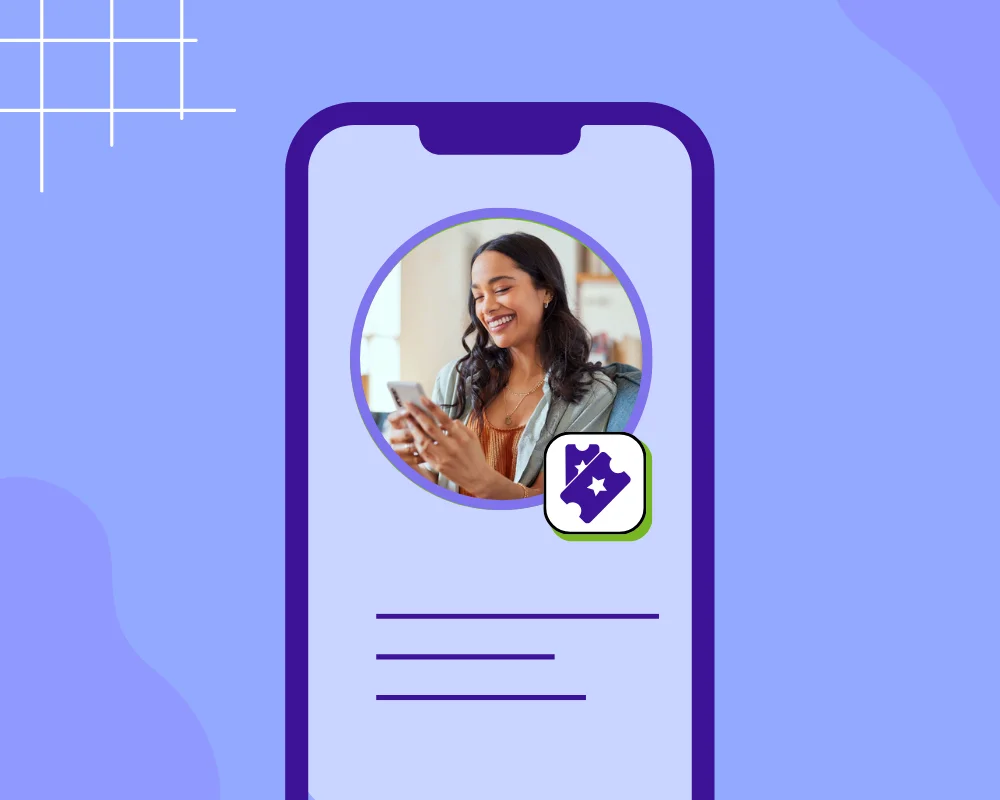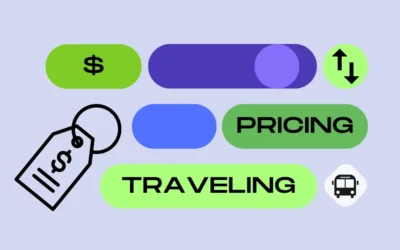We analyze the value of direct booking, assessing its impacts on operational efficiency, traveler satisfaction, and business profitability for bus companies.
In the digital age, the bus transportation sector faces a crossroads in its sales strategy: should companies focus on encouraging direct bookings or rely on ticketing agencies? This dilemma is crucial, as each method presents unique advantages and particular challenges.
Direct booking allows bus companies to control the traveler’s experience, from ticket purchase to after-sales service, while maximizing their profit margins by avoiding third-party commissions.
On the other hand, ticketing agencies offer a consolidated platform with broad visibility and access to a diverse audience. In this article, we will explore the value of each approach, analyzing their impacts on operational efficiency, traveler satisfaction, and business profitability.
Value of direct booking when buying a bus ticket
When we discuss the primary value of direct booking, versus travel agencies, the benefits of passengers and bus companies must be considered. To do this, we will break down how each benefits from direct booking when purchasing bus tickets.
According to José Luis Landaeta, Head of Customer Success at Reservamos SaaS, the value for the bus companies and the traveler is as follows.
For bus companies
- Cost reduction: they save costs by not paying commissions to OTAs, and they can also increase the margin of each transaction with actions such as round-ticket sales.
- Data: data collection remains within the brand, i.e., they can access and consult any information needed at that moment and not depend on a third party to send you information that may be filtered in a certain way.
- Liquidity: to have their income directly and not depend on the OTAs to send them the sales according to their policies. In their direct channels, the money goes directly to their bank accounts.
- Experience: the brand knows and knows all the traveler’s behavior within its own online sales channel, and even in other channels, such as the ticket office, which allows it to offer an experience that meets its service standards.
For the traveler
- Price: direct sales have the best price because the traveler can save money. By buying directly on the site, you avoid commissions and markup (additional fees) that OTAs usually charge.
- Promotions: you may find promotions that are only available on brand pages. For example, some brands send anniversary promotions exclusively on their direct channels.
- Booking or purchase management: consumers have a better experience in direct channels since they have more customization in routes, preferred schedules, and seat selection. In addition, customer service is simpler when it comes to a purchase within the direct channel. Changes and cancellations are easier to process since they are in direct contact with the brand.
- Loyalty: when buying directly with the brand, they have access to loyalty programs that generate benefits not found in other channels.
Regarding the management of revenue from the sale of bus tickets in agency versus direct channel, the main difference is that in direct sales the revenue falls directly to the brand’s accounts.
With this, the companies have the daily settlement of sales, so they can have their financial strategy adequate to their cash flow, plus the profit margins are higher because they avoid paying the high commissions that OTAs have.
Advantages and disadvantages for a company that markets its digital ticketing through an OTA
In the digital age, selling bus tickets through online travel agencies (OTAs) has gained significant popularity, offering both advantages and disadvantages for bus companies. On the one hand, OTAs provide an established platform with a wide audience and global reach, which can result in an immediate increase in sales and visibility.
However, relying on OTAs can also imply several challenges, such as reduced profit margins due to commissions; loss of control over the direct relationship with the traveler; potential conflicts in price management and promotions; and above all, one of the most important, limited access to data on traveler behavior, which hinders the possibility of converting that advantage into strategies that drive growth, such as the creation of new functionalities or updates to eCommerce, in line with market trends, the traveler and new technologies.
Based on the experience and knowledge of the Customer Success area of Reservamos SaaS, led by José Luis, we share with you the advantages and disadvantages for a bus company marketing its digital tickets through an online travel agency, offering a comprehensive vision for companies to make informed decisions about their sales strategies.
| Advantages | Disadvantages |
| Audience access. Participating in an additional distribution channel has greater reach, all OTAs have traffic that can help you reach more travelers. | Costs and commissions. OTAs often charge high commission percentages, which can affect the company’s margins. |
| Advertising. OTAs have a high marketing spend (usually), which can help the brand become known or strengthen its position in the market. | Financial dependence. A high dependence on sales through OTAs can result in a significant part of your revenue being subject to these commercial conditions (payment terms). |
| Comparison. In OTAs, travelers can easily compare which is the best option, so sometimes they can help the brand that is better positioned in terms of price and departure options. | Competition. The competitive nature of OTAs can result in a price war, seeing all the brands together and looking for the same goal of having the best price, unleashing this war. |
| Synergies. With OTAs, it is possible to create packages that can benefit the brand by offering transfer + hotel or other services. | Loyalty. It is difficult to generate loyalty to your brand with so many options shown. The traveler only generates loyalty to the OTA or to whoever has the lowest price and not to your brand. |
| Limited personalization. The brand loses control of how information is presented and the traveler’s shopping experience. | |
| Low rates of innovation. Leaving the management of your eCommerce to an OTA or keeping only the presence in this external channel results in a technological slowdown for your company and a competitive disadvantage in your market. |
Role of promotions and offers in the choice between direct booking and travel agencies
According to José Luis, if in the direct channel bus companies have a differentiated (better) price and also offer an adequate shopping experience with excellent after-sales service, the balance is increasingly tipping towards direct purchase where the traveler has 3 important aspects in his favor: price, experience and control of his booking.
Promotions and special offers can influence the traveler’s perception of value, making one option more attractive than the other, based on the additional benefits offered. In addition to value, travelers can review where they have the best experience, control of their booking, and after-sales service to make the purchase. – José Luis Landaeta, Head of Customer Success at Reservamos Saas.
What steps should bus companies take to promote direct bookings?
In order for bus companies to optimize their sales and strengthen their relationship with their travelers, it is crucial that they implement a number of strategies focused on direct bookings.
Implementing these strategies not only optimizes direct sales but also improves the traveler experience and strengthens the competitive position of bus companies in the market.
José Luis shares some essential actions that all companies should be taking.
Dynamic pricing: Provide exclusive pricing for direct bookings, incentivize advance purchases through a pricing strategy, activate discount codes in special seasons, and adjust prices in real-time based on demand and other market factors.
Additional benefits: Include additional benefits for direct bookings, such as priority boarding, and preferential seating for direct channels only.
Loyalty programs: Implement loyalty programs that reward travelers for direct bookings by accumulating points that can be redeemed for future discounts or additional services. This increases retention rates and the base of loyal travelers.
Digital marketing campaigns: Use digital marketing to drive traffic to the official website, including social media advertising, SEO, SEM, and email marketing campaigns.
- User education: Communicate to travelers the benefits of booking directly, such as lower prices, exclusive offers, and better customer service.
- Retargeting: Implement retargeting strategies to engage travelers who visited the website but did not complete a booking or abandoned the shopping cart.
- Price transparency: Communicate final prices clearly and transparently, emphasizing that direct sales avoid surprise charges.
Competitive pricing: Ensure that prices in the direct channel are competitive with those offered by OTAs (at least 10% lower in the direct channel).
Exclusive offers: Create exclusive offers and packages available only through direct booking.
Data analytics: Use data on traveler behavior in the direct channel to better understand traveler preferences, develop personalized marketing strategies, and improve the traveler experience.
Feedback and improvements: Collect feedback from travelers on their direct booking experience and use it to make continuous service improvements.
It is important to recapitulate the importance of having control of the direct channel when selling bus tickets online. Especially with the help of specialized technology such as that offered by Reservamos SaaS, because in this way, companies will be able to offer greater personalization to travelers about routes, preferred schedules, and seat selection, i.e., the components of the search.
Here is a summary of the main advantages of personalization:
- Improved user experience: Having control over the sales platform allows the company to continuously improve the user interface and experience, making it easier to navigate, book and manage trips.
- New product development: With direct access to customer data, companies can identify emerging trends and demands, enabling them to develop new products and services that better meet their customers’ needs.
- Rapid testing and adjustment: Direct selling allows companies to test new offerings and adjust them quickly based on customer feedback, accelerating the innovation cycle.
- Exclusive promotions: By selling directly, companies can offer exclusive promotions and discounts to their customers, incentivizing direct bookings and building a loyal customer base.
- Personalized promotions: Companies can create customized promotions and discounts for different customer segments, optimizing revenue and customer satisfaction.
- Digital marketing: With direct access to customer data, companies can develop more effective digital marketing campaigns, using advanced segmentation and targeting techniques.
- Differentiation from the competition: By innovating in their own sales channel, companies can differentiate themselves from the competition through unique features and a clear value proposition.
Through the direct channel, companies can also take control and make decisions for constant innovation in terms of improving their eCommerce and data usage.
At Reservamos SaaS we maintain a constant pace of innovation in the solutions that make up our technology ecosystem. For example, our Product Designer team completely revamped the search system in our partners’ eCommerce, which benefited bus companies that use this service by prioritizing their direct sales channel.
In another case, by having control of the data through the direct channel, is that Marketing Automation strategies can be generated with the help of solutions such as ReservamosONE, an intelligent system that unifies a user’s interactions with the different sales channels (online and offline), to create personalized pricing and marketing strategies.
Companies that decide to sell tickets directly online can implement personalization strategies on their platforms, offering recommendations and promotions based on the customer’s history and preferences.




